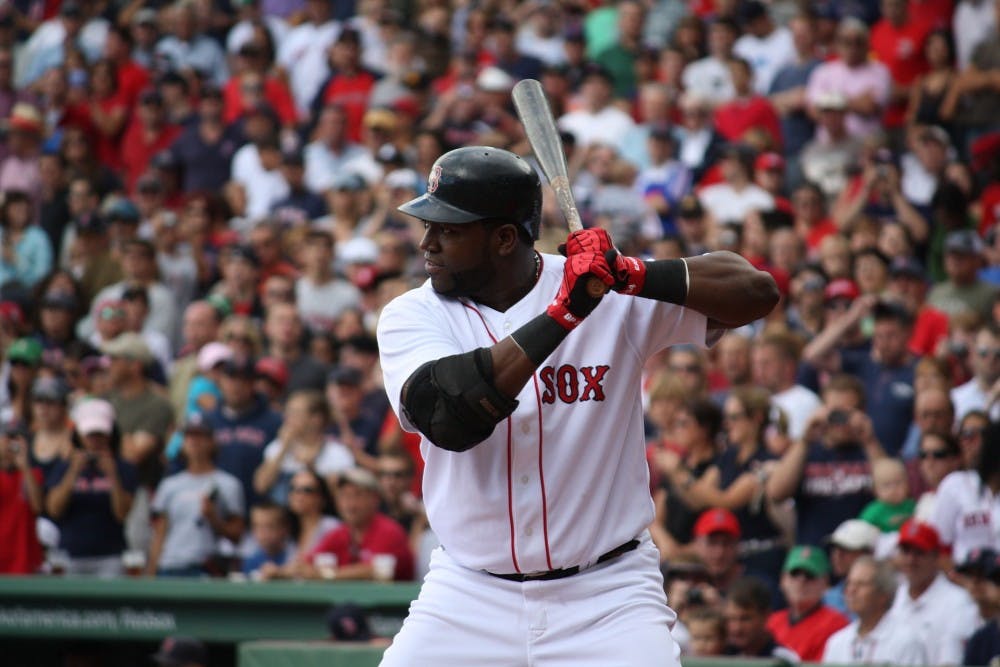Through just eight Wild Card games in four seasons, baseball fans have already seen the wide range of dramatic moments that a winner-take-all game can bring. From a controversial infield fly rule to a roller-coaster 12-inning affair, baseball’s version of the play-in game has had it all.
But with just three weeks remaining in the 2016 MLB season and 10 teams jostling for four spots, the wild card race is as exciting as it has ever been—and that’s a huge positive for baseball.
Starting in 1994, with the expansion of the MLB from 26 to 28 teams, a division was added in both the American and National Leagues. With six teams then earning automatic postseason bids, rather than four, two more spots were created for the best second-place team in each league—this was known as the wild card.
In its first 11 years, four wild card winners became World Series champions. But with just one non-division winner taking the title from 2005 through 2011, the MLB was in dire need of newfound energy and excitement.
Hence, the second wild card was born.
"You don't do things for only one year. You do things for a long period of time," then-MLB commissioner Bud Selig said after the November 2011 owners’ meetings. "We believe after a lot of study and a lot of thought that the addition of two wild cards is really going to help us in the long run.
Although five seasons may not be a long time in baseball terms—the MLB has been in existence for nearly 150 years—the early returns on this decision have been positive.
Rather than playing an additional series that would drag an already-lengthy postseason into mid-November, the two top teams in each league that failed to win their division now have the opportunity to advance to the divisional series by winning a one-game playoff. The team with the better record of the two is the host—six of the eight wild-card winners, however, have been the visitors.
Unfortunately, outside of Kansas City’s 9-8 win in 2014, no game has been decided by fewer than three runs and the victor of a wild card game has captured the World Series just once.
But that doesn’t mean there has been a lack of drama with coveted postseason spots up for grabs.
Five American League teams remain within four games of the two current wild card leaders, Baltimore and Toronto. And with the New York Yankees—who currently stand two games out of the Wild Card lead—playing seven of their final 21 games against the Orioles and Blue Jays, they are also in the mix.
In the National League, three teams are battling for the two spots, San Francisco, St. Louis and the New York Mets are separated by just two and a half games. The Giants and Cardinals will play a crucial 4-game series this weekend in San Francisco and the Mets will take on three of baseball’s eight worst teams in 13 of their last 19 games.
The increased chances of making the playoffs has led more teams to make trades before the MLB's Aug. 1 trade deadline. More than half of the 30 teams felt confident enough in their playoff chances this season to give away prospects that could benefit them down the line. One of the most notable trades this season involved Boston acquiring All-Star pitcher Drew Pomeranz from San Diego.
But although the addition of a second wild card is a bonus for teams that otherwise would not make the playoffs, winning the division remains the top priority.
Rather than having to play a one-game playoff, the six teams that win their respective divisions have the opportunity to take a couple of days to rest prior to the beginning of postseason play and can set their pitching rotations as they desire. Also, if a team has to travel across the country, they may only have a day or two to prepare for the most important game of their season.
With only about 20 games remaining in the 2016 season, four of the six division crowns are basically settled. Except for tight races in the A.L. East and N.L. West, the closest battle is in the A.L. Central, where Cleveland leads Detroit by a commanding six and a half games. In the N.L. Central, the Cubs have had first place locked up for months now—they currently lead St. Louis by 17 games.
Any way you look at it, baseball has benefitted in numerous ways since the advent of the second wild card.
As someone with a roommate whose Boston Red Sox have bounced back-and-forth all season between leading their division, hanging onto a wild card and sitting on the outside looking in, I’ve had to live with the insanity and excitement that the final month of baseball can bring.
I don’t figure it’s going away any time soon.
Get The Chronicle straight to your inbox
Signup for our weekly newsletter. Cancel at any time.
Twitter: @mpgladstone13
A junior from just outside Philadelphia, Mitchell is probably reminding you how the Eagles won the Super Bowl this year and that the Phillies are definitely on the rebound. Outside of The Chronicle, he majors in Economics, minors in Statistics and is working toward the PJMS certificate, in addition to playing trombone in the Duke University Marching Band. And if you're getting him a sandwich with beef and cheese outside the state of Pennsylvania, you best not call it a "Philly cheesesteak."

